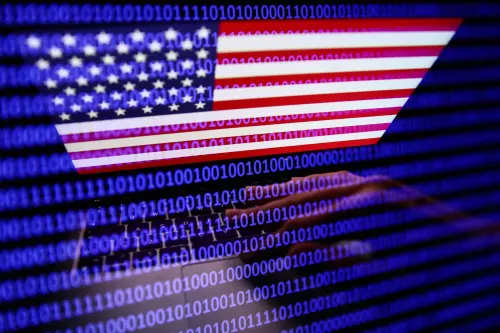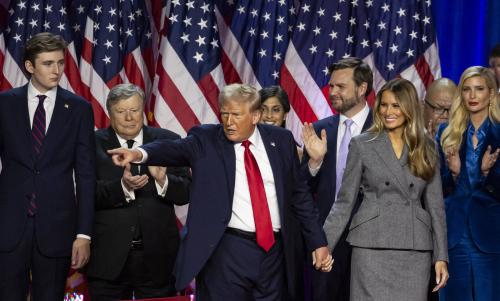On October 27, Elon Musk purchased Twitter in a deal worth $44 billion. Expectations and opinions about the deal vary widely. Critics are concerned that Musk will remove important safeguards against hate speech, online harassment, and incitement of violence, and weaken the platform’s rules against mis- and disinformation. Proponents of the deal hope that Musk will improve Twitter’s business model and expand the capabilities of the platform, turning it into an “everything app” with a range of products and services.
However, one important aspect of Musk’s acquisition of Twitter has received less attention: The acquisition’s relevance to national security. Not only has Musk brought on a number of investors to help finance the deal, including entities with links to China, Qatar, and Saudi Arabia (see Table 1), but one of his other companies, Tesla, is increasingly dependent on the Chinese market and the goodwill of the Chinese government. Due to the critical position of Twitter as a platform for political discourse in the U.S., the Committee on Foreign Investment in the United States (CFIUS), a federal interagency committee tasked with reviewing the national security implications of foreign investment in domestic companies, should investigate the Twitter deal on the grounds of national security. According to recent press reports, Biden administration officials are indeed discussing whether the Committee should investigate the deal and on October 31, Senator Chris Murphy (D-Conn.) called for CFIUS to begin an investigation. Given evolving trends in CFIUS decisions in other cases, President Biden would have strong grounds for blocking Musk’s Twitter acquisition or at the very least compelling the minority foreign investors to sell their equity to parties that would not pose a national security threat. Importantly, while the business deal is technically completed, CFIUS has the authority to retroactively investigate and undo it, which it has done in other instances in the past. In 2020, for example, President Trump ordered the Chinese company Beijing Shiji Information Technology Co. to divest from U.S. cloud-based company StayNTouch Inc. following a CFIUS review over one year after the former had acquired the latter.
Table 1: Foreign-Linked Equity Co-Investment Commitments in Twitter Acquisition
| Linked Country | Equity Investment (billion $) | Percentage of Outside Equity | Investor |
| USA | $3.420 | 48% | Various funds |
| Saudi Arabia | $1.894 | 27% | Prince Alwaleed Bin Talal Bin Abdulaziz Alsaud (Kingdom Holding Company) |
| United Arab Emirates | $0.700 | 10% | VyCapital (Dubai) |
| China | $0.500 | 7% | Binance (initially based in China in 2017) |
| Qatar | $0.375 | 5% | Qatar Holdings LLC (owned by Qatar sovereign wealth fund) |
| Canada | $0.250 | 4% | Brookfield (Toronto) |
| Total | $7.139 |
Source: May 2022 SEC Filing by Elon Musk
In this article, we explain what CFIUS is and how it works. We then discuss the recent expansion of CFIUS’s mandate and the evolution of the Committee’s decisions over time, especially in circumstances similar to the Twitter deal. Finally, we examine the legal case for CFIUS and President Biden to investigate and block Musk’s acquisition of Twitter or, at a minimum, order the divestments of certain equity stakes, even retroactively.
What is the Committee on Foreign Investment in the United States?
CFIUS, is a committee in the executive branch of the U.S. government composed of the heads of multiple high-level and national security-related offices. It was initially established in 1975 by President Ford for the simple purpose of monitoring and evaluating the impact of foreign investment in the U.S. The Committee is chaired by the Department of the Treasury and includes the Departments of Justice, Homeland Security, Commerce, Defense, State, and Energy, as well as the Office of the U.S. Trade Representative and the Office of Science & Technology Policy.
In 1988, Congress added the Exon-Florio amendment (named after its sponsors, Sen. James Exon and Rep. James Florio) to the Defense Production Act of 1950, which granted authority to the president to suspend or block investments by foreign entities in the United States where “there is credible evidence that leads the President to believe that the foreign interest exercising control might take action that threatens to impair the national security.” At the time, Congress was mainly concerned about acquisitions of American companies by Japanese firms.1 President Reagan delegated authority under the amendment to review and render initial decisions regarding such transactions to the CFIUS.
The effect of the Exon-Florio amendment and presidential delegation, greatly expanded the role of CFIUS from just monitoring and evaluating foreign direct investment in general to advising the president on individual transactions which could result in foreign control of U.S. firms. In 2007, Congress codified CFIUS’s authority in these matters in the Foreign Investment and National Security Act (FINSA) of 2007.
FINSA was a product of an increased focus on national security after the September 11 terrorist attacks and a controversy surrounding the acquisition of U.S. ports by DP World, a state-owned firm from the United Arab Emirates. It increased congressional oversight of CFIUS, increased transparency, broadened the definitions of national security, and demanded greater CFIUS scrutiny of some foreign investment.
CFIUS reviews are intended to protect U.S. national security and thus are typically triggered by proposed purchases of U.S. firms with classified or security government contracts, critical technologies, critical infrastructure, or geographic proximity to sensitive government facilities. Historically, CFIUS investigations and restrictions on foreign investment have been motivated by a mixture of both national security and economic independence concerns.2 However, the broad composition of CFIUS also reflects a tension between the departments of the federal government that traditionally have been strongly concerned with national security (such as the Departments of Defense and Homeland Security) and other departments historically associated with promoting commerce that have traditionally welcomed foreign direct investment (such as the Departments of Commerce and the Treasury).
The scope of CFIUS is limited to businesses that engage in interstate commerce, in addition to any foreign entities and any transaction that may result in “control” of a U.S. business, whether through acquisitions, leases, or other investments. CFIUS’s review only applies if there is a standard of “credible evidence” that the transaction may threaten U.S. national security.
CFIUS retains broad discretionary power
Despite these statutory limitations, CFIUS retains broad discretionary power. As discussed in more detail later, CFIUS can and does review both proposed transactions and those that have already been completed, such as Musk’s acquisition of Twitter. Edward Graham at the Peterson Institute for International Economics and David Marchick, former CFIUS participant and Deputy Assistant Secretary of State for Economic Affairs, have argued that CFIUS’s authority is not time-limited or subject to a statute of limitations, and that it has no set definition of “national security,” “foreign control,” or “credible evidence” of a national security threat.3 The Congressional Research Service noted that recent legislative changes enable CFIUS to potentially “discriminate among foreign investors by country of origin.” These ambiguities allow each administration to deploy CFIUS to match its own priorities. As we note in a later section, CFIUS decisions in both the Trump and Biden administrations have moved in the direction of greater scrutiny of foreign acquisitions, especially those in technology, where personal information is subject to misuse, and where the purchasing entities originate in countries with interests adverse to those of the U.S.
The CFIUS Review Process
Parties involved in a deal that may fall within CFIUS’s purview may voluntarily notify the Committee to seek approval, or CFIUS may initiate a review of a transaction itself. The primary incentive for a company to voluntarily notify the Committee is certainty—companies may get a “safe harbor” letter which protects them from most further CFIUS review, thereby allowing them to move forward with the deal. If the Committee deems a transaction or investment by a foreign entity to be of national security concern, it may itself initiate an investigation and require all parties to comply.
During its review process, CFIUS first determines if a foreign investment falls under its purview. In its investigation, the Committee considers the foreign entity’s plans for the business it has acquired or invested in; any motivation for the investment actions; the identities and backgrounds of senior executives of all companies; any shareholders with more than 5% equity in the foreign acquirer; whether the domestic company operates critical infrastructure; and how the transaction will impact U.S. national security, including through its effect on the U.S.’s technological leadership.

The CFIUS process formally involves an initial 45-day review period, after which a further 45-day investigation period may be carried out if necessary. If the investigation determines that there is some level of risk involved in the foreign investment that cannot be mitigated, the case may be referred to the president, beginning a 15-day presidential review period. (See Figure 1 for details.) These are official timelines, but in practice CFIUS may informally pause the process and thereby extend the overall period of scrutiny.
If CFIUS does find national security risks, it may demand “mitigation measures”
When CFIUS has concluded an investigation, it may act upon its findings in several ways. If it determines that a transaction has no unresolved security risks, it informs parties to the transaction that it has completed all relevant action and issues a “safe harbor” letter that shields the transaction from most further investigation. If CFIUS does find national security risks, it may demand “mitigation measures,” which are either imposed or agreed upon with the transaction parties through negotiation. These measures may involve, for example, adding a CFIUS-approved director or implementing oversight measures. If CFIUS determines that no mitigation measures can sufficiently address the national security risks of the transaction, it issues a recommendation to the president saying that the transaction should be blocked. Parties typically abandon their transactions following such a recommendation rather than risking presidential intervention and the associated reputational damages. However, in rare cases, parties may want to proceed with a deal despite this recommendation, in which case CFIUS may refer the case to the president for a final decision. CFIUS itself can only impose mitigation measures or recommend that a deal be abandoned, but it cannot block a deal entirely—that power remains with the president, granted under the Exon-Florio amendment.
Whereas Congress was mainly concerned with Japanese investment when it enacted the Exon-Florio amendment, in recent years, Congress and the public have had growing concerns about the national security threats posed by Chinese investment in the U.S., especially in U.S. technology firms. Congress responded to these concerns by enacting the Foreign Investment Risk Review Modernization Act (FIRRMA) of 2018. FIRRMA further expanded the scope of CFIUS to cover transactions involving real estate in proximity to sensitive U.S. government facilities, critical industries or technologies, foreign government linked investments, and, importantly, compromising personally identifiable information of U.S. citizens.
The Trump administration implemented regulatory changes pursuant to FIRRMA to strengthen CFIUS reviews. A November 2018 rule introduced mandatory filing requirements for critical technologies, which were expanded in February and again in September 2020. An additional mandatory filing requirement was added for transactions where the acquiring entity is a foreign government. Furthermore, and crucially for the Twitter deal, the new regulations under FIRRMA give CFIUS jurisdiction over minority foreign investments in some technology, infrastructure, and data firms if the investors would have access to sensitive personal data, be on the board of directors, or be part of the substantive decision-making of the firm.
Overall, FIRRMA and associated regulatory changes create a more assertive role for CFIUS in economic and national security interest, especially regarding foreign acquisitions involving emerging technologies and the personal data of Americans.
The Biden administration has continued to strengthen the CFIUS review process. In September 2022, President Biden issued an executive order that added five new national security considerations for CFIUS reviews, including impact on critical supply chains, U.S. technological leadership, cybersecurity risks (including potential election interference), and access to “sensitive data of U.S. persons.”
The Biden administration has continued to strengthen the CFIUS review process
CFIUS may also retroactively investigate deals that have already closed, and recommend (or, in the case of a presidential review, order) that companies divest certain holdings. Indeed, as mentioned previously, CFIUS’s authority is not time limited and has no statute of limitations, enabling it to act with discretion.4 Further, final decisions made by the president are not subject to judicial review.5
Recent CFIUS Reviews
CFIUS cases are typically confidential—the Committee does not publicly confirm or deny notifications or investigations. Still, information can be obtained from annual congressional reports, cases that have been blocked by a president, have been publicly announced, or have been revealed by a company.
Moreover, although CFIUS is not a judicial body, its decisions over time are similar to how courts develop bodies of law by interpreting statutes and developing the common law. Accordingly, it is appropriate and necessary to see how CFIUS has decided prior cases in order to assess whether Musk’s acquisition of Twitter could merit review by the Committee. As this section makes clear, there are clear patterns that emerge from examining the developing CFIUS “case law.”
Starting with the numbers, Figure 2 charts the rate at which CFIUS notices are investigated, have mitigation measures imposed, or are rejected outright, either by CFIUS or by the president. Under Trump, there was an initial spike in the rate of investigations, which rose to over 70% in 2017, but quickly came down to under 50% by 2019. In President Biden’s first year, the rate of investigations remained relatively unchanged at a little under 50%.
The fraction of notices for which mitigation measures were imposed has remained roughly constant over the past three administrations, at generally 10% or less of notices filed, except for a brief spike from 2017-2019. The fraction of notices rejected has remained very low, at or below 2% since 2009. In 2021, CFIUS did not reject any notices filed.
Source: CFIUS Annual Reports to Congress
According to a Treasury study of CFIUS activity in 2021, the recently increased review activity by CFIUS is largely due to increasingly complex cases and increased foreign investment in domestic companies, which grew from a total of $71 billion in 1990 to a peak of $511 billion in 2015. Chinese investments in the U.S., which peaked at $45 billion in 2016, were a substantial part of this increase. In 2021, the Committee reviewed 164 declarations and 272 notices on a wide range of topics from computer systems design to semiconductor manufacturing to electric power generation (declarations are short-term filings reviewed on an expedited basis, while notices are the traditional mechanism of notification for CFIUS and are voluntarily submitted). Both declarations and notices include information about the transaction and the businesses involved. Transactions involving U.S. financial and technology sectors accounted for the highest portion of these declarations and notices.
Recently, semiconductor acquisitions with Chinese links have been under great scrutiny, as the U.S. embraces pro-domestic industrial policy for chips and related high-priority technologies. A sectoral focus for CFIUS scrutiny is in line with the history of foreign investment regulation, dating back to regulation of German ownership of American chemicals manufacturing during World War 1.6
Under President Obama, for example, an investment from Chinese-linked firm Grand Chip Investment in the U.S. operations of a German chip manufacturer, Aixtron, was blocked. President Trump blocked the acquisitions of Qualcomm and Lattice Semiconductor, two U.S. semiconductor companies, by foreign firms, Broadcom (Singapore-based) and Canyon Bridge (U.S.-based with Chinese capital backing).
Also during the Trump administration, CFIUS raised concerns about personally-identifiable-data jurisdiction in its evaluation of investment in Grindr, a dating application for the LGBTQ community, by the Beijing Kunlun Company, which led to its divestment from Grindr. On similar grounds, CFIUS blocked the sale of MoneyGram, a U.S.-based money transfer company, to the China-based Ant Financial, and the divestiture of a majority stake in PatientsLikeMe, a U.S.-based health data company, by China-based iCarbonX.
Further, a retroactive investigation has reportedly been opened into the acquisition of Musical.ly by the Chinese company ByteDance, the maker of TikTok, for the same reasons. In this case, however, it appears that CFIUS may impose mitigation measures for the protection of U.S. citizens’ data rather than retroactively reverse the deal entirely. These measures have not been publicly disclosed in detail but have been reported to include routing all U.S. traffic to TikTok through U.S.-based Oracle’s servers, developing a “data access protocol” with Oracle, and installing an oversight board. However, Bloomberg quotes Stewart Baker, a national security lawyer, and Nova Daly, a former Treasury official who worked on CFIUS proceedings, to argue that that such a deal is unlikely to prevent sensitive U.S. personal data from leaking to China.
Recent cases have demonstrated the extent to which CFIUS is willing to aggressively pursue Chinese-linked investment
Recent cases have demonstrated the extent to which CFIUS is willing to aggressively pursue Chinese-linked investment, particularly in semiconductors. A regulatory change under the post-FIRRMA regulations enabled CFIUS to block a Chinese acquisition of a South Korean semiconductor company called Magnachip. Magnachip had a very small U.S. footprint, including a Delaware registration and a New York Stock Exchange listing, but that was considered to be sufficient to meet the “interstate commerce” threshold of CFIUS jurisdiction, and a review was carried out.
The focus on such cases is confirmed by the 2021 annual report on CFIUS to Congress, where it was noted that Chinese investment was the largest single source of “covered transaction” notices, reaching 44 notices for the year. Further, while the number of CFIUS “covered transaction” notices from Qatar and Saudi Arabia are very small compared to those from China, they have grown in recent years. Saudi Arabia-based companies filed three notices in each of 2019 and 2021, up from just one in each of 2017 and 2018; Qatar-based companies filed one notice in each of 2018 and 2019 and two each in 2020 and 2021, up from none in 2016 and 2017.
Recent CFIUS actions have included action against minority foreign investments. In 2016, a proposed 15% investment in U.S.-based Western Digital by Unisplendour, a subsidiary of a Chinese state-backed corporation, was abandoned after report of a CFIUS investigation. A consortium including the Chinese NavInfo abandoned a 10% equity investment in U.S.-based HERE technologies in 2017. In May 2018, a 45% proposed investment in U.S.-based polymer company Akron Polymer Systems by China-based Shenzhen Selen Science & Technology was abandoned after CFIUS intervention.
Together, this case history suggests that across the Obama, Trump, and Biden administrations, CFIUS reviews illustrate concerns about Chinese-linked investment in U.S. technology firms, especially technology dealing with sensitive personal information. It would be entirely consistent, therefore, for the Biden administration to use the CFIUS process at the very least to scrutinize, modify, or even block the Musk-Twitter deal.
Potential for CFIUS Investigation of Twitter Acquisition
On October 20, Bloomberg reported that Biden administration officials were discussing having CFIUS review Musk’s acquisition of Twitter, specifically citing concerns over Musk’s stance on Russia. Although the report did not give many specifics, this type of review would be consistent with actions taken by the Committee in the past, although on much broader grounds than Musk’s views on Russia.
There are several components of the Musk acquisition of Twitter that are relevant to a CFIUS review: (1) the deal involves billions of dollars from foreign co-investors, including state-linked firms from Qatar and Saudi Arabia and a Chinese-linked cryptocurrency company; (2) Twitter itself stores the personal and sensitive information of tens of millions of U.S. citizens; and (3) Twitter is a key platform for U.S. political discourse, making foreign influence over it an election interference risk.
Foreign Equity
Musk himself is a U.S. citizen. If he were buying Twitter on his own, the deal may have fallen outside CFIUS’s jurisdiction. However, the involvement of foreign minority investors may subject the entire deal to CFIUS scrutiny.
According to an SEC filing from May 2022, Musk has secured $7.1 billion in outside equity financing for the deal, in addition to $6.25 billion in debt financing through a margin loan secured by Musk’s Tesla stock, $13 billion in debt financing from major international banks, and over $20 billion of his own funds. The bank debt financing of $13 billion is arranged by a consortium of seven global banks, namely U.S.-based Bank of America and Morgan Stanley, England-based Barclays, France-based BNP Paribas and Société Générale, and Japan-based Mizuho and MUFG. Since most of the $13 billion debt financing for the deal is from large banks from allied countries, the debt portion of the deal would likely not be subject to a CFIUS review.
Most of the equity investors are U.S.-based funds from New York, Chicago, and Menlo Park. However, five major equity investors are foreign. One, Brookfield Asset Management, likely poses lesser concerns from a CFIUS perspective as it is a large Canadian investor based in Toronto, which has committed $250 million. A second one is VyCapital, a tech investment firm based in Dubai, which has committed $700 million to the deal.
Of potentially greater national security concern, however, are three other investors with links to China, and the governments of Qatar and Saudi Arabia
Of potentially greater national security concern, however, are three other investors with links to China, and the governments of Qatar and Saudi Arabia. Binance, the largest cryptocurrency exchange in the world, has committed $500 million. Binance was initially based in China, although it has since registered itself around the world, including in tax havens such as the Cayman Islands and the Seychelles. Qatar Holding LLC, a subsidiary of the sovereign wealth fund of the state of Qatar, has committed $375 million. The Kingdom Holding Company, an investment firm owned and run by Prince Al Waleed bin Talal al Saud of Saudi Arabia, has planned to “roll over” its existing $1.9 billion investment in Twitter at Musk’s share purchase price. In light of the recent deterioration in relationships between the U.S. and Saudi Arabia, the continued investment by Saudi Arabia—especially in what is now a private company—could be more problematic from a CFIUS perspective. Table 1 shows the outside equity investments from foreign-linked investors.
As recent cases have demonstrated, CFIUS attention frequently concentrates on Chinese-linked investment, and the Binance equity investment alone may be sufficient to bring the deal under investigation. This comes at a time when the FBI has labeled confronting China’s economic espionage efforts its “top counterintelligence priority” and accused the country of “seeking to influence lawmakers” to create policy more favorable to China and carrying out “brazen cyber intrusions” to attempt to become the predominant superpower. Additionally, on October 24, the Justice Department charged 13 people who allegedly carried out plots to advance Chinese interests in the U.S., saying the Chinese government “sought to interfere with the rights and freedoms of individuals in the United States and to undermine our judicial system.” Awareness of Chinese influence has grown, particularly among lawmakers who have passed recent legislation to counter China’s technological advances, including the CHIPS Act.
Meanwhile, the Qatari and Saudi investors in Musk’s Twitter deal are directly tied to their respective national governments, a further point of concern for CFIUS investigation and likely triggering a mandatory CFIUS filing under FIRRMA regulations.
Specifically related to Twitter, in 2018, the Saudi government flooded Twitter with thousands of bots tweeting messages favorable about Saudi Crown Prince Mohammed bin Salman, accounts that Twitter subsequently suspended. Twitter also suspended a Saudi official, Saud al-Qahtani, for being directly involved in Washington Post journalist Jamal Khashoggi’s death and being an instrumental player in Saudi Arabia’s digital media operations targeting critics. If the Saudi regime retains its stake in Twitter, especially in the unmoderated form Musk has indicated Twitter will take, it is possible that it will not only resume these campaigns, but also use the the platform itself to make its propaganda more effective.
While it is important to note that the outside equity brought in is a small fraction of the overall financing for the deal (as shown in Table 2, only $3.72 billion, or around 8%, of a total $46.5 billion, is foreign-linked equity investment), this may not be much of a defense against a CFIUS review. As mentioned previously, Trump-era regulations under FIRRMA stipulate that even minority investments in firms working in technology, infrastructure, and data may be under CFIUS jurisdiction if the foreign investor retains any substantive decision-making authority, technical information access, or board seats. Therefore, if foreign investors have information access or decision making power in Twitter, there are good grounds for a CFIUS review. There is already emerging evidence that foreign-linked equity investors will be taking these kind of involved roles in Twitter’s future—the China-linked Binance announced that it would work on helping Twitter integrate blockchain and crypto technology.
If a CFIUS investigation determines that the Twitter deal is a national security concern, it may reverse the deal entirely, or it may order the divestment of foreign equity stakes.
Table 2: All Financing Commitments in Twitter Acquisition
| Finance Source | Value (billion $) | Percent |
| Elon Musk | $20.11 | 43% |
| Tesla-secured margin loan | $6.25 | 13% |
| Debt financing | $13.00 | 28% |
| Foreign-Linked Outside Equity | $3.72 | 8% |
| Domestic Outside Equity | $3.42 | 7% |
| Total | $46.50 |
Source: May 2022 SEC Filing by Elon Musk, Fortune
Personal Information on Twitter
Around a quarter of American adults say they use Twitter, according to a Pew survey. For each user, the company typically has a plethora of personal information, including direct messages, which are not end-to-end encrypted (meaning they can be accessed by the company), IP addresses, cookie information, and browsing histories. From this data, the company can derive information about personal preferences, relationships, affiliations, and other confidential information which, at best, could be used to improve the company’s algorithm or display more targeted ads and at worst could be manipulated by a foreign actor.
China has attempted to utilize social media to influence Americans’ political views and push out its own propaganda. Access to even some of the personal information from Twitter would allow China to better target and organize propaganda, with potentially grave national security and election integrity consequences. Additionally, scholars including Bruce Riedel at Brookings have argued that Saudi Arabia has attempted to interfere in U.S. politics before through oil price intervention. It is therefore not unreasonable to think Saudi Arabia might engage in similar targeted propaganda campaigns.
The personal data stored by Twitter and its potential for use in political influence makes this deal a strong candidate for CFIUS investigation
As noted earlier, Trump-issued regulations under FIRRMA give CFIUS jurisdiction over minority investments that involve “sensitive personal data,” and a Biden-issued executive order specifies that CFIUS consider risks to election interference and sensitive personal data. Therefore, the personal data stored by Twitter and its potential for use in political influence makes this deal a strong candidate for CFIUS investigation.7
The influence of Twitter in U.S. elections
Further, among American adults who use Twitter, nearly 70% get news on the site, according to a 2021 Pew survey. One in three tweets are political, and Twitter is widely considered an important forum for political engagement and the spread of information. Twitter’s algorithm means users often see content that reinforces their own views and biases. Studies have demonstrated the importance of educating people against blindly trusting the news that appears in their feed. Part of this education likely includes labeling misinformation online. Experts including Edward Perez, former Twitter product director for civic integrity, warn that rolled-back content moderation on Twitter in the coming days may be unable to keep up with disinformation efforts, especially during the midterm elections. Other studies have shown that the most popular “fake news” stories are shared more widely than the most popular mainstream news stories and that many who see “fake news” report that it influenced their beliefs. When unchecked, social media can have a real impact on public opinion and, in turn, the body politic.
A recognition of social media’s influence on the public is what led Europe to pass the Digital Services Act, which requires platforms to share their algorithms with regulators and disclose their content removal policies and targeted advertising methods. In reaction to Musk’s acquisition of Twitter, Thierry Bretton, the EU’s Commissioner for the Internal Market, reaffirmed that the social media company must still follow all EU laws including the Digital Services Act. However, with a lack of similar disclosure laws in the U.S., CFIUS should at the very least consider the platform’s outsized influence on the body politic and our electoral system in assessing whether the Twitter deal has any adverse effects on national security. Indeed, President Biden’s September 2022 executive order explicitly includes U.S. election interference as a risk factor that CFIUS must consider in its reviews.
Other National Security Considerations related to the Deal
The combination of foreign equity holders with Twitter’s ownership of sensitive personal data provides strong grounds for CFIUS to launch an investigation. However, another important national security concern with Musk’s Twitter acquisition that is relevant for policymakers more broadly is Tesla’s dependence on China.
Tesla in China
Because Musk’s personal wealth is primarily derived from his ownership of Tesla shares, and Tesla has significant business in China, there are concerns about potential Chinese government influence over Twitter’s policies.
In 2018, Tesla was permitted to be the first foreign car manufacturer in China to open a Shanghai factory that was not required to partner with a Chinese company. Tesla was granted an exemption to the 10% purchase tax in China as well, in addition to discounted land, loans, and subsidies. Tesla also relied on state support to reopen its plant amidst a COVID-19 lockdown. The Shanghai plant has the highest production of any of Tesla’s locations, accounting for over half of Tesla’s 2021 deliveries. Around 40% of Tesla’s annual production capacity is now in Shanghai, as shown in Figure 3.
Source: Mark Kane at InsideEVs.com
Tesla’s Chinese production and domestic sales are significant, reaching over 76,000 cars produced in Shanghai in August 2022, with over 34,000 cars sold within China. In the first half of 2022, Tesla was the third-highest selling electric vehicle brand in China, with 7.5% of the total market share.
As a result of Musk’s success with Tesla in China, he has been full of praise for the country and its government. Tesla also opened a showroom in the province of Xinjiang, a controversial move given the widespread criticism of human rights violations of its Uyghur population. Further, Musk wrote a column for the Cyberspace Administration of China, the government’s online regulator and censor.
Moreover, from 2019 to 2021, Tesla’s revenues from China grew at a 67% compounded annual rate, compared to just 24% in the U.S. and 21% elsewhere, as shown in Figure 4a. Tesla’s annual report for 2021 showed $13.8 billion in sales from China, as compared to $23.9 billion in U.S. sales and $16 billion in other international sales, making Chinese sales over 25% of Tesla’s revenue, as shown in Figure 4b.
Source: Authors’ calculations from Tesla 2021 10-K SEC filing
Tesla’s finances also heavily rely on access to the Chinese market and financing from Chinese lenders. Tesla took out and paid back loans from Chinese lenders amounting to $614 million in 2019 and $560 million in 2020.8 Tesla also has a $1.8 billion investment from Tencent, a large Chinese tech company.
In sum, the importance of China in Tesla’s production, domestic sales, and export businesses cannot be overstated, in the present and into the future. Being cut out of the Chinese domestic electric vehicle market or having production in Shanghai stalled would be devastating blows to Tesla, and it is possible that the Chinese government may leverage this power to gain influence over Twitter. This is a consideration in weighing the national security implications of Musk buying Twitter.
Conclusion
President Biden would be justified to use his authority under CFIUS to investigate the sale of Twitter to Elon Musk, particularly as long as foreign investors from China, Qatar, and Saudi Arabia are part of the deal. The risk to national security appears significant, with possible unchecked influence of adversarial governments in play as well as the possibility of providing access to the personal information of millions of Americans to these foreign entities. Further, the acquisition could potentially provide a platform for increased foreign meddling and the dissemination of misinformation and “fake news” on Twitter that could have devastating consequences for American democracy and our national security. Given the trends and rationales of past CFIUS decisions, under both the Trump and Biden administrations, we believe the Biden administration would have strong grounds for blocking the deal, or at the very least compelling the sale of the minority stakes held by the foreign investors identified here to parties that would not pose a national security threat.
The Brookings Institution is financed through the support of a diverse array of foundations, corporations, governments, individuals, as well as an endowment. A list of donors can be found in our annual reports published online here. The findings, interpretations, and conclusions in this report are solely those of its author(s) and are not influenced by any donation.
-
Footnotes
- Graham, Edward M. and David M. Marchick. U.S. National Security and Foreign Direct Investment. (New York: Columbia University Press), 1.
- Ibid. 1-2.
- Ibid. 38-40.
- Ibid. 37.
- The text of the Defense Production Act, which is the foundation of CFIUS, explicitly bars judicial review in Section 721 (e)(1) – “[t]he actions [and findings] of the President . . . [regarding CFIUS determinations] shall not be subject to judicial review” as quoted in Christopher M. Fitzpatrick, Where Ralls Went Wrong: CFIUS, the Courts, and the Balance of Liberty and Security, 101 Cornell L. Rev. 1087 (2016). Available at: https://scholarship.law.cornell.edu/clr/vol101/iss4/5. In a slight complication, while the DC Circuit Court of Appeals has upheld that the action of the president in blocking a transaction is not subject to judicial review, it has stated that the process preceding such action is subject to judicial review on constitutional due process grounds.
- Graham and Marchick, 5-6.
- Senator Chris Murphy has argued on similar grounds, noting that the sensitive personal data protection mandate of CFIUS should apply to the Twitter deal.
- The loan was for RMB 4 billion in May 2020, when the average exchange rate was RMB 1 = $0.1408.









